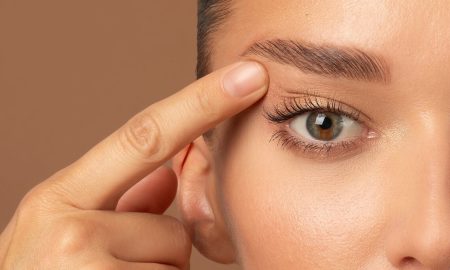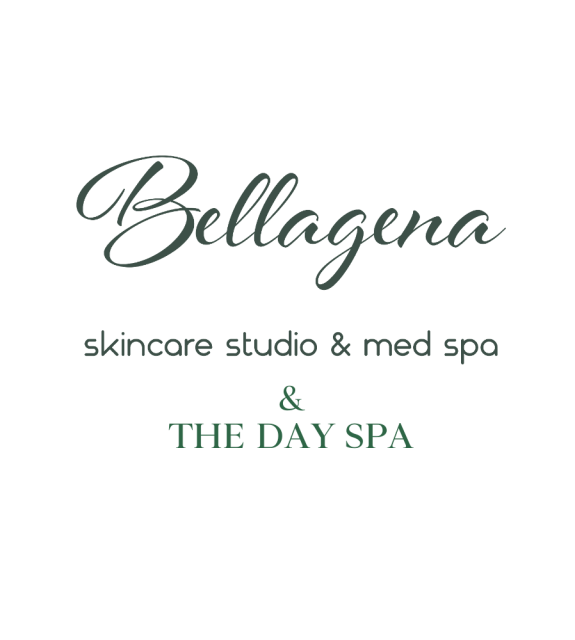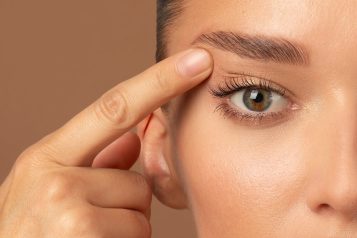
By understanding the specific concerns and requirements of our skin at different stages, we can make informed choices and establish skincare routines that honor our skin's evolving needs. Discover the power of targeted skincare and treatments designed to enhance skin resilience and let us embark on a journey of radiant, confident, and age-defying skin that reflects the extraordinary individuals we are!
Stress
Understanding the impact of stress on our skin is a crucial step in skincare maintenance. Our skin is an intricate tapestry of interconnected systems, and stress can disrupt this delicate balance. A healthy skin barrier is vital for locking in moisture and protecting us from harmful microbes. Stress disrupts this barrier, leading to irritation and chronic skin conditions, dryness, sensitivity, and even breakouts.
The body's chemical response to stress makes the skin more sensitive and reactive. It increases inflammation, slows down wound healing, and breaks down collagen and elastin, speeding up aging as fine lines, sagging, and wrinkles. Under stress, your sebaceous glands also produce more oil, exacerbating acne in breakout-prone people. Increased oil production can clog pores and contribute to acne, blackheads, and other signs of skin congestion.
Cortisol, the stress hormone, suppresses the immune system and disrupts other hormones like androgens, leading to imbalances that affect skin health and appearance. That brings us to our next ‘skinfluencer’ – hormones.
Hormones
Our skin is closely intertwined with our hormonal balance, and fluctuations can manifest as acne, pigmentation, or dullness. Hormonal changes throughout our menstrual cycles, perimenopause, and menopause can affect our skin's health and appearance. Understanding the influence of hormones on the skin is vital for skin care maintenance throughout different life stages.
ESTROGEN
The shift in sex hormones that occur throughout a woman's life, including in a single menstrual cycle, can significantly affect the skin. Estrogen, present in varying concentrations in all bodies but higher in females, plays a crucial role. Among other things, estrogen contributes to the normal function of the skin and blood vessels, sebaceous glands, hair follicles, and melanocytes, a type of pigment-producing cell. It stimulates hyaluronic acid, collagen, and elastin. This contributes to skin firmness, resiliency, barrier function, wound healing, and regulating oil gland activity. Without estrogen, pores may appear larger and skin may appear saggy and wrinkled.
Research suggests that low estrogen levels during certain phases of the menstrual cycle may contribute to increased skin sensitivity. Studies have found that around menstruation, about two out of five women report more sensitive skin.
ANDROGENS
Also known as "male hormones," androgens affect many aspects of the body, such as hair growth, voice changes, and libido. Imbalances in androgens, as in conditions like polycystic ovarian syndrome (PCOS) or during menopause, can contribute to acne, excess hair growth, and female pattern hair loss.
PROGESTERONE
Progesterone, essential for reproductive processes, has a less defined impact on the skin. It is believed to contribute to skin elasticity, pigmentation, increased circulation, and sebaceous gland activity observed in the second half of the menstrual cycle.
MELATONIN
The hormone melatonin regulates your sleep and wake cycles. It also stimulates your body's natural production of antioxidant enzymes, which neutralize damaging free radicals and repair skin cell damage caused by external factors like pollution and sun exposure. These enzymes are more effective than those from vitamins C and E.
INSULIN
Insulin, responsible for regulating sugar levels in the body, can impact the skin when the body becomes insulin resistant in conditions like diabetes. When blood sugar levels are too high, the body wants to eliminate excess glucose quickly, so it draws the fluid from the body so that it can produce enough urine to eliminate it. This can make your skin dry and flakey. Several skin conditions are also strongly linked to diabetes, such as skin tags, and dark patches of hyperpigmented skin known clinically as acanthosis nigricans. For women, it can also cause excessive "male pattern" hair growth in areas like the chin and upper lip.

Pregnancy, nursing, and the postpartum period
Pregnancy and motherhood bring profound joy and transformation, but can be accompanied by specific skin concerns and demands. From the radiant glow of pregnancy hormones to the potential challenges of melasma and stretch marks, expectant mothers face unique skin concerns. By making informed choices and opting for pregnancy-safe ingredients, people can maintain a healthy skincare routine throughout this special life stage.
SPF is important for everyone, every day. However, pregnant people have skin that is more sensitive to UV radiation, making them more prone to sunburn and deep cellular damage. To prevent melasma, people should avoid sun exposure during pregnancy and after birth. Since it's almost impossible to avoid the sun, especially during the beautiful summer months, it’s crucial to apply a mineral-based sunscreen daily, regardless of the weather, to protect the skin effectively.
Mineral sunscreens are preferable over chemical sunscreens due to concerns about chemical absorption into the skin. Using Hyaluronic acid and a Vitamin C serum can improve dryness and collagen damage and reduce fine lines and wrinkles.
The Postpartum Period
For new mothers, the postpartum period presents its own skin challenges. Hormonal fluctuations, sleep deprivation, and the demands of caring for a newborn can take a toll on our skin's health and appearance. During the postpartum and lactating periods, low levels of estrogen can impact the production of hyaluronic acid, collagen, and elastin in the body. These low hormone levels contribute to trans-epidermal water loss, leading to dehydration and flaky, dry skin.
When selecting products to manage your changing skin, it's important to know the ingredients. Most skincare products are safe for use during breastfeeding since they are not readily absorbed into the bloodstream. However, it's imperative to use baby-safe products in areas where you'll frequently have skin-to-skin contact with your baby, like the breasts, neck, chest, and nipples. Certain skincare ingredients commonly used to treat acne, inflammation, and hyperpigmentation, such as salicylic acid, retinoids, and hydroquinone are contraindicated during pregnancy. Since your skin also tends to become more sensitive during pregnancy, you may find that these ingredients are now too irritating for you anyway. Alpha hydroxyl acids such as glycolic acid are safe to use and can be a nice alternative to traditional acne and brightening treatments.
What treatments are available in the office?
Laser resurfacing skin treatments are considered safe during pregnancy and breastfeeding because the wavelengths used in these treatments do not penetrate deep enough to affect milk ducts or lactation. Our Halo™ laser triggers the “dermal regeneration phase” in your skin which helps improve skin tone, texture, and elasticity after the treatment is finished. Clear + Brilliant® is another device that uses energy in the form of heat to regenerate collagen, diminish redness and brighten the skin revealing a smoother, clearer complexion with no downtime.
For wrinkle reduction, skin tightening, and cellulite treatment, Sofwave™ is a great choice. Sofwave™ uses a unique ultrasound technology that stimulates the production of new collagen and elastin, leading to a natural-looking, yet noticeable, reduction in fine lines, wrinkles, and cellulite dimples. UR Medicine Cosmetic Dermatology is one of the only offices in the area to offer this treatment and one of the amazing benefits is that it requires no downtime!
Microneedling is another treatment we offer in-office that can minimize the appearance of stretch marks, acne scars, pore size, discoloration, loose skin, fine lines, and wrinkles. In addition, microneedling with PRP (platelet-rich plasma) can be used to help induce stem cells in the scalp leading to hair growth and the absorption of hair growth products.
We offer chemical peels that smooth and brighten the skin by applying different acid formulations, which remove the superficial layers of skin to reveal a more youthful appearance. Lastly, we perform injectable treatments like dermal fillers and botulinum toxin injections (Botox®) to treat fine lines, plump lips or cheeks, or soften smile lines. Botox injections, however, should not be performed during pregnancy or while breastfeeding.
While all of the treatments described are considered minimally invasive, you should exercise caution if pregnant or breastfeeding as studies have not been done on this group, and skin is much more sensitive during this time.
For more information on any of these treatments please call us at 585-275-SKIN (7546). And for my favorite products visit linktr.ee/drmaraweinstein.
For more information, visit Dr. Mara Weinstein Velez's social media:
























